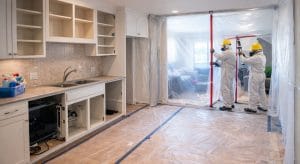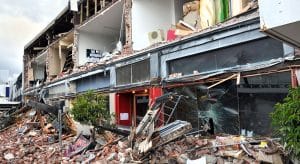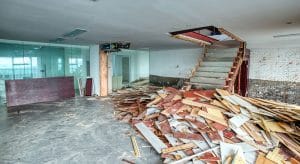Commercial demolition is a complex process that requires precision, planning, and compliance. Whether you’re refurbishing a retail space, preparing an office for a new tenant, or clearing an industrial site, understanding the key stages can help your project run smoothly — saving both time and money.
This guide breaks down the typical process, timeline, and major considerations for commercial demolition in Brisbane and the Gold Coast.
Quick CTA: Request your tailored commercial demolition plan →
1. Initial Site Assessment and Feasibility
Every successful demolition project starts with a thorough site inspection.
During this phase, the demolition contractor will:
- Review building layout, access points, and nearby structures
- Identify hazardous materials such as asbestos or lead paint
- Evaluate site constraints (traffic flow, neighbouring tenants, loading areas)
- Assess existing utilities — water, gas, electricity
After the inspection, you’ll receive a detailed quotation and feasibility report, outlining the safest and most cost-efficient approach for your commercial property.
👉 Learn more on our Commercial Demolition service page.
2. Planning, Permits & Compliance
In Queensland, all commercial demolition projects must comply with Work Health and Safety Regulations and local council requirements.
This stage includes:
- Obtaining necessary permits or demolition approvals
- Preparing Safe Work Method Statements (SWMS)
- Environmental management plans and waste-recycling targets
- Coordination with building owners, tenants, and neighbouring businesses
Partnering with a licensed and experienced contractor ensures that your demolition meets all safety and environmental standards from day one.
3. Site Preparation & Safety Measures
Before demolition begins, the site must be fully prepared and isolated. The team will:
- Install temporary fencing and signage
- Disconnect or cap utilities
- Implement dust and noise control systems
- Secure lifts, stairwells, and entry points
- Erect scaffolding or protective barriers for multi-storey sites
A well-prepared site reduces risks and helps keep nearby operations unaffected during demolition.
4. Demolition Execution: Step-by-Step
The demolition process varies depending on the scale and type of project — from internal defits to structural demolition.
Typical stages include:
- Soft strip-out – Removing fittings, ceilings, partitions, and furniture
- Structural demolition – Breaking down walls, flooring, and slabs safely
- Waste removal – Segregating recyclable materials and hazardous waste
- Dust management – Using misting systems and negative-air machines
- Debris loading and transport – Moving materials to approved disposal sites
Each phase is monitored by a site supervisor to maintain safety and efficiency.
5. Waste Management & Recycling
Modern demolition isn’t just about tearing down — it’s about responsible resource recovery. Spotless Demolition sorts materials for recycling wherever possible, including:
- Concrete and masonry
- Metals, glass, and timber
- Fixtures and fit-out elements
This approach reduces landfill waste and aligns with Queensland’s sustainability and waste-diversion targets.
6. Site Clean-Up and Final Handover
After demolition, a full site clean-up is conducted to prepare for the next construction phase. This includes:
- Sweeping, vacuuming, and debris removal
- Final inspection for safety and environmental compliance
- Handover documentation (photos, recycling logs, completion certificates)
The result: a spotless, builder-ready commercial space.
7. Project Timeline: What to Expect
Project timelines depend on building size, scope, and site conditions.
Here’s a general guide:
| Project Type | Estimated Duration | Example Scope |
|---|---|---|
| Small retail defit | 2–5 days | Shopfront or café |
| Office strip-out | 1–2 weeks | Multi-floor offices |
| Industrial/warehouse demo | 2–4 weeks | Factory or distribution centre |
| Full structural demolition | 1–3 months | Multi-storey building |
Our team works closely with you to create a schedule that minimises disruption to ongoing business operations.
8. Key Concerns for Business Owners
When planning a commercial demolition, keep these points in mind:
- Access logistics: truck entry, crane use, waste bin placement
- Downtime: schedule works outside of trading hours where possible
- Compliance: ensure your contractor provides up-to-date licences and insurance
- Safety: verify that risk assessments and SWMS are in place
- Recycling & reporting: ask for documentation of waste diversion and recycling
By addressing these early, you’ll prevent costly delays and compliance issues.
Why Choose Spotless Demolition
- Fully licensed and insured (up to $20 million public liability)
- Specialists in commercial and industrial demolition across Brisbane & Gold Coast
- Proven track record in retail, office, and warehouse defits
- Fast, safe, and environmentally responsible processes
CTA: Ready to get started? Request your tailored commercial demolition plan today.






